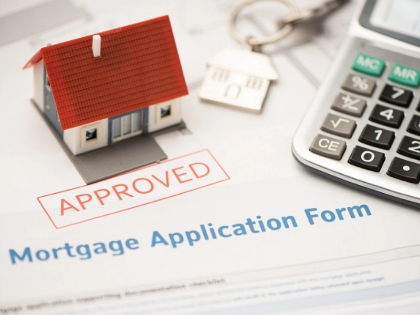Mortgage Repayment Penalties: Important Information
If you sell or refinance your mortgage debt before it reaches its full maturity date, the lender may impose prepayment penalties. It's a means of making up for lost interest income. Examine your loan documentation and inquire about terms and any potential prepayment penalties from your lender before selling or refinancing. In the long term, it might save you money.
How do they exist?

Lenders charge them; why?
 Prepayment penalties are a common tactic used by mortgage lenders to make sure they are paid for the interest you pledged to pay during the first loan period. With the money they will save from paying off your mortgage or refinancing, they might even be able to partially offset the penalty fee. Check the documents you signed at the loan closing or ask your lender if you believe your mortgage may have a prepayment penalty. Your monthly billing statement or an addition to the note should contain the information.
Selling your house, paying off your mortgage, or making a sizable lump-sum payment can all result in a prepayment penalty; however, modest additional payments won't. Notably, most states restrict or outright forbid prepayment penalties on residential first-mortgage loans as well as several forms of second-mortgage loans.
Prepayment penalties are a common tactic used by mortgage lenders to make sure they are paid for the interest you pledged to pay during the first loan period. With the money they will save from paying off your mortgage or refinancing, they might even be able to partially offset the penalty fee. Check the documents you signed at the loan closing or ask your lender if you believe your mortgage may have a prepayment penalty. Your monthly billing statement or an addition to the note should contain the information.
Selling your house, paying off your mortgage, or making a sizable lump-sum payment can all result in a prepayment penalty; however, modest additional payments won't. Notably, most states restrict or outright forbid prepayment penalties on residential first-mortgage loans as well as several forms of second-mortgage loans.
What Is The Price Of Them?
 Searching for lenders who do not impose prepayment penalties is a common preference among borrowers. If you think you might be able to sell or refinance before the first penalty date, it's worth trying to negotiate a lesser cost if you have already closed on a mortgage with a penalty in place.
Since the lender is most in danger of loss during the first few years of the loan term, most mortgage prepayment penalties apply at that time. Depending on the kind of prepayment penalty clause in your mortgage deal, the precise cost will change.
A sliding scale dependent on the term of the mortgage is a popular option. A sequential 2/1 prepayment penalty, for instance, would impose a penalty equal to 2% of the outstanding debt in year 1 and 1% of the remaining balance in year 2. Both your mortgage contract and your loan estimate contain this information. Details about your prepayment penalty should also be broken out in your monthly billing statement.
Searching for lenders who do not impose prepayment penalties is a common preference among borrowers. If you think you might be able to sell or refinance before the first penalty date, it's worth trying to negotiate a lesser cost if you have already closed on a mortgage with a penalty in place.
Since the lender is most in danger of loss during the first few years of the loan term, most mortgage prepayment penalties apply at that time. Depending on the kind of prepayment penalty clause in your mortgage deal, the precise cost will change.
A sliding scale dependent on the term of the mortgage is a popular option. A sequential 2/1 prepayment penalty, for instance, would impose a penalty equal to 2% of the outstanding debt in year 1 and 1% of the remaining balance in year 2. Both your mortgage contract and your loan estimate contain this information. Details about your prepayment penalty should also be broken out in your monthly billing statement.
How Are They Avoidable?
 When borrowers sign their mortgage loan agreements, lenders are legally obligated to inform them of the conditions of any prepayment penalties. But other lenders don't and they still charge these costs.
Thankfully, these penalties are not applied to the majority of government-backed mortgage loans, including those covered by the Federal Housing Administration, the U.S. Department of Agriculture, and the U.S. Department of Veterans Affairs. Prepayment penalties are typically avoidable by selling your house or refinancing within a specific number of years after you sign your original loan agreement, even if you do have a conventional mortgage with them.
Furthermore, only sizable lump sum payments made early in the loan term, whether you sell your house, refinance, or make a sizable lump sum payment, are typically subject to harsh prepayment penalties. They usually won't be triggered by a few extra payments made over the course of a year. To be completely aware of the terms of your mortgage, it is advisable to confirm with your lender.
When borrowers sign their mortgage loan agreements, lenders are legally obligated to inform them of the conditions of any prepayment penalties. But other lenders don't and they still charge these costs.
Thankfully, these penalties are not applied to the majority of government-backed mortgage loans, including those covered by the Federal Housing Administration, the U.S. Department of Agriculture, and the U.S. Department of Veterans Affairs. Prepayment penalties are typically avoidable by selling your house or refinancing within a specific number of years after you sign your original loan agreement, even if you do have a conventional mortgage with them.
Furthermore, only sizable lump sum payments made early in the loan term, whether you sell your house, refinance, or make a sizable lump sum payment, are typically subject to harsh prepayment penalties. They usually won't be triggered by a few extra payments made over the course of a year. To be completely aware of the terms of your mortgage, it is advisable to confirm with your lender.







